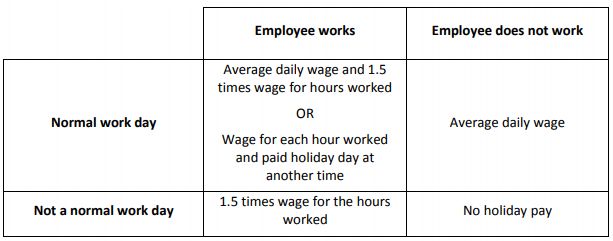On May 27, 2019 the newly elected United Conservative Party (the "UCP") introduced Bill 2, An Act to Make Alberta Open for Business (the "Bill"), where it also passed its first reading. The Bill reflects numerous campaign promises made by the UCP in the most recent Alberta election. If passed, the Bill will make changes to the Alberta Employment Standards Code and the Alberta Labour Relations Code. In addition, effective June 26, 2019, the Employment Standards Regulation was amended. Such change and proposed changes are summarized below.
AMENDMENT TO THE EMPLOYMENT STANDARDS REGULATION
On May 27, 2019, an Order in Council created the Employment Standards (Minimum Wage) Amendment Regulation, which will amend the Employment Standards Regulation to change the minimum wage for youth workers to $13.00 per hour, effective June 26, 2019. The change only applies to:
(1) Workers who are
(a) under 18 years of age; and
(b) enrolled in an educational institution.
(2) Work that is performed
(a) during a school break; or
(b) in the first 28 hours in a week that does not fall within a school break.
PROPOSED CHANGES TO THE EMPLOYMENT STANDARDS CODE
If passed, the Bill will make changes to employee entitlements, to banked overtime and holiday pay, and should come into effect on September 1, 2019.
Reduction in amount of required overtime pay for overtime agreements
Currently, where a Flexible Averaging Agreement is in place, if an employee works overtime, they are entitled to 1.5 hours of banked overtime for every overtime hour worked. If Bill 2 is passed, employers will only be required to offer paid time off on a one-to-one ratio, meaning that where an employee works one overtime hour, they are only entitled to one hour of paid time off. Flexible Averaging Agreements will no longer be required.
Changes in holiday pay qualifying period and entitlements
Currently, employees are entitled to general holiday pay upon commencing employment. If Bill 2 is passed, to qualify for holiday pay, an employee must work 30 days in the 12 months before a general holiday.
There would also be distinctions between regular and irregular workdays as follows:

CHANGES TO THE LABOUR RELATIONS CODE
Changes to the union certification process
The Bill proposes restoring mandatory secret ballot vote for union certification applications. If the Bill is passed, the period in which unions are required to provide evidence of employee support for certification will change to 90 days from the current six months. Additionally, the Bill will remove automatic union certification where there is evidence of more than 65% support of employees in the applied for unit.
Supports for employees to be developed
The Bill sets out that the Minister of Labour may establish a program to provide support and assistance to employees with respect to matters under the Labour Relations Code and other labour legislation. The specifics of this program have not been released but, if the Bill is passed, they should be in place by October 1, 2019.
The content of this article is intended to provide a general guide to the subject matter. Specialist advice should be sought about your specific circumstances.
We operate a free-to-view policy, asking only that you register in order to read all of our content. Please login or register to view the rest of this article.



